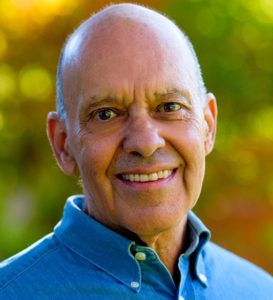
by Marcel Hernandez, N.D.
Simon and Garfunkel’s song The Sounds of Silence poetically presents us with a conundrum. There is, of course, no sound in silence. And somewhat ironically, there’s hardly any silence anywhere nowadays.
One of my most vivid memories was the complete, utter lack of sound I experienced in the Olympic National Park. Doubly surprising to me, both then and now, is that the total, depthless stillness it was an absolutely unique experience in my life.
Stop what you’re doing and listen. When I do this here at home, I hear the fridge, the heating system, and cars passing on the nearby Central Expressway, a main feeder route for Silicon Valley commuters.

In this major urban area, low, near-inaudible sounds surround us constantly – there is NO silence in our environment. I’ve often considered that my moderately diminished hearing isn’t entirely a bad thing, since it affords me partial protection in a world where a constant electronic buzz is the background soundtrack for our lives.
How does the constant noise of the modern world affect us?
Studies clearly show that exposure to prolonged or excessive noise causes a myriad of health problems, including stress, poor concentration, decreased productivity, communication difficulties, fatigue from sleep loss, cardiovascular disease, cognitive impairment, tinnitus, and hearing loss.
In 2011, the World Health Organization (WHO) collated data from large-scale epidemiological studies of environmental noise in Western Europe, collected over a 10-year period.
The studies analyzed environmental noise from planes, trains, vehicles, and other city sources. The researchers looked for links between noise and health conditions such as cardiovascular disease, sleep disturbances, tinnitus, cognitive impairment in children, and emotional annoyance.
The WHO team used the information to calculate the disability-adjusted life years or DALYs – basically, the healthy years of life lost to unwanted, human-induced dissonance. And the results were surprising. They found that at least one million healthy years of life are lost each year in Europe alone due to noise pollution. And this figure doesn’t include noise from industrial workplaces.
The authors concluded: “There is overwhelming evidence that exposure to environmental noise has adverse effects on the health of the population.”
They ranked traffic noise second among environmental threats to public health, the first being air pollution.
The authors also noted that while other forms of pollution are decreasing, noise pollution is rising.
Moreover, the sounds that we are not aware of may, in fact, affect us the most, in particular the sounds we “hear” while we’re asleep.
The human ear is extremely sensitive, and it never rests. Thus, even while you’re sleeping, your ears are working, picking up and transmitting sounds that must be filtered and interpreted by the brain.
It’s a permanently open auditory channel that forces your body to react to the “unheard” night sounds that travel via nerve pathways to all parts of the body and affect hormones released by the brain.
The most obvious consequence is interrupted sleep, with flow-on effects of fatigue, impaired memory and creativity, impaired judgment, and weakened psychomotor skills.
Studies have shown that people who live near airports or busy roads have a higher incidence of headaches, take more sleeping pills and sedatives, are more prone to minor accidents, and are more likely to seek psychiatric treatment.
But wait – there’s yet another, even more serious outcome. It seems that continual noise sets off the body’s acute stress response, raising blood pressure and heart rate and potentially mobilizing a state of physical hyper-arousal. It’s this particular response that can lead to cardiovascular disease and other health issues.
In researching this column, I learned a great deal more about the health-compromising effects of uninvited noise than I could include here. Try Googling “harmful effects of sound (noise)” to learn more.
For information about the services we offer at Pacific Naturopathic, please give us a call at 650-961-1660. You can also use the convenient Contact Form to get in touch, or follow the link to: Consultations – Pacific Naturopathic. Thank you!
